How Small Food Businesses Are Essential to San Francisco’s Revitalization, and What They Need to Thrive
Savannah Leone Bundy, Foodwise Volunteer
March 15, 2024
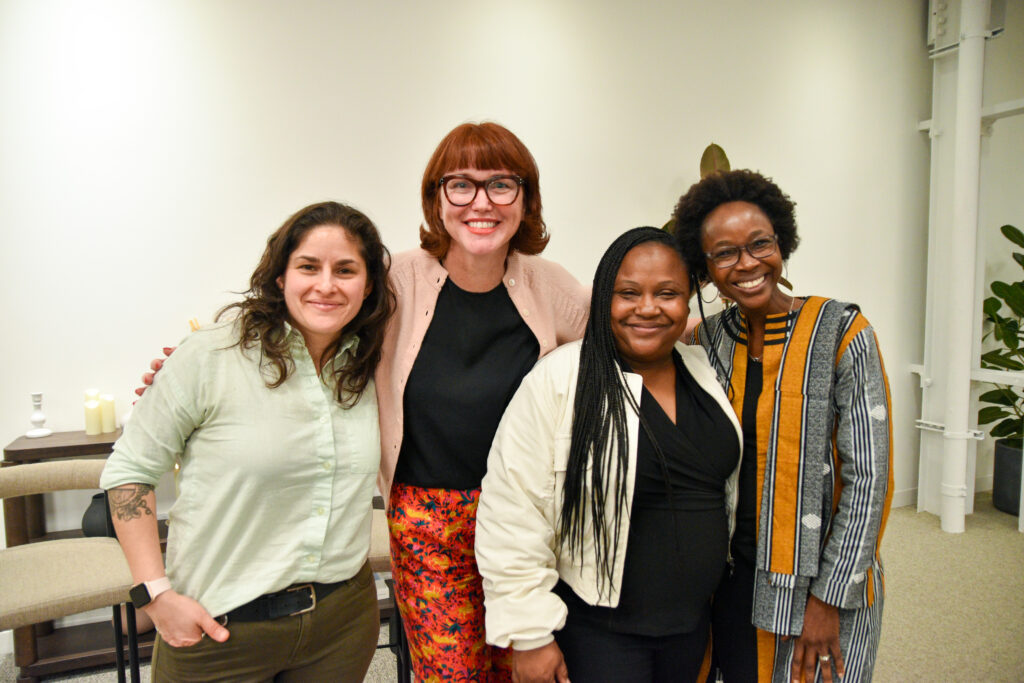
What does a vibrant San Francisco look like? This was the question posed a few weeks ago at a discussion hosted by Foodwise. I, for one, imagine a landscape full of bright colors, enticing smells, and joyful sounds, where the food that we eat reflects the community and celebrates our natural resources. Despite what some outsiders might think, we still have all of those things: San Francisco absolutely remains a vibrant city, with brilliant people doing incredible things.
Some of those people include Pia Harris, CEO of SF Housing Development Corporation, Emiliana Puyana, director of the La Cocina incubator program, and Nafy Flatley, chef and owner of Teranga, all of whom sat as panelists for recent Foodwise Talks discussion “Can Small Food Businesses Spark San Francisco’s Revitalization?” During the conversation, moderated by Foodwise Executive Director Christine Farren, some of the biggest challenges facing small food businesses were discussed, along with some ideas for how to meet them. You can listen to the full talk here.
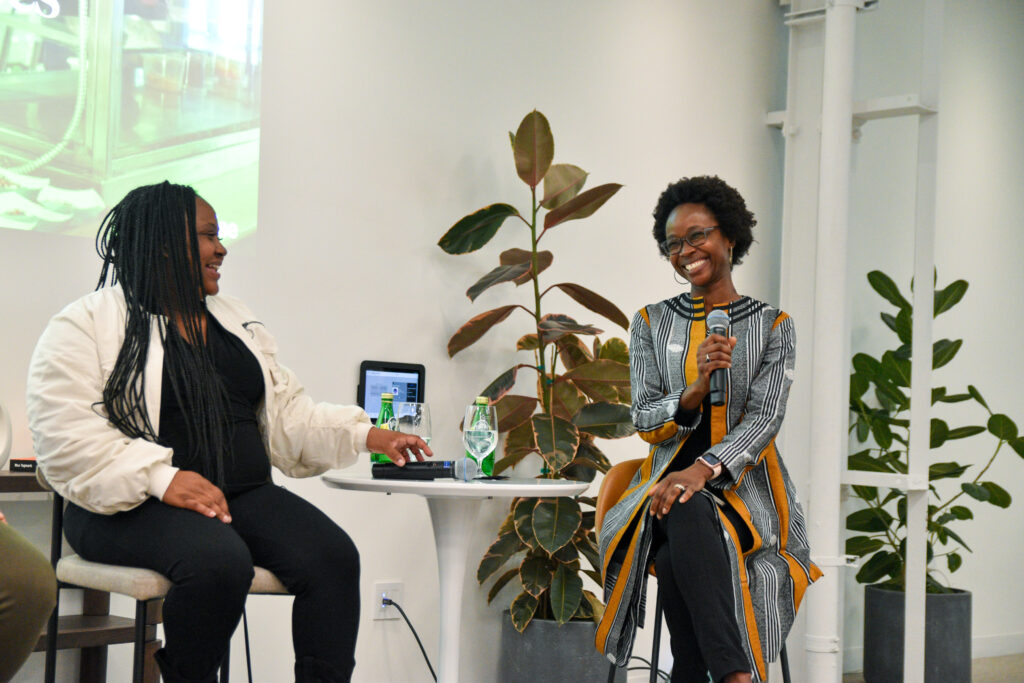
Challenge: City Bureaucracy and High Operating Expenses
After rent, labor, cost of goods, marketing, and the vast array of expenses that pop up, small food businesses often see profit margins of about 7–10%—sometimes even less. When you add to that the long list of often arbitrary requirements for city permitting, small business owners are fighting a somewhat impossible battle.
Pia Harris has been trying to open her restaurant for close to a year now. She held a grand opening, “thinking that it was going to be approved by the health inspector,” she says, “and then you get a new health inspector who says, ‘oh no, the sink that you put in isn’t sufficient enough.’ And so that costs you another 30, 60, 100 grand to have to reroute it. And then the next time they come in, there’s another one.”
Even when well-intentioned initiatives like Vacant to Vibrant (a city-sponsored program designed to help small businesses get off the ground) get involved, food is a different ballgame. Nafy Flatley, who makes Senegalese baobab juices, snacks, and cuisine, started her businesses with La Cocina and was one of Vacant to Vibrant’s first participants, popping up at Four Embarcadero Center. She described it as “the next big thing that happened after the pandemic. Everybody was just waiting to see what can we do to get our city back.”
While she found that the assistance provided by the program—including help securing grant money, city permits, and storefronts—was definitely beneficial, it wasn’t necessarily tailored to food businesses like hers. “For someone doing a pop-up like an art space, or someone selling jewelry, those make sense,” says Nafy, “but for restaurants it’s a different timeline…it takes you almost a year to set all that stuff up.”
Solution: Sharing the Risk
What if organizations like Vacant to Vibrant worked together with ones like La Cocina? Not only does the incubator program help food start-ups grow from pop-ups and vendor stalls to brick-and-mortar establishments, they also advocate for fair lease agreements and reciprocal relationships with landlords.
Emiliana and La Cocina fight for business owners to get leases that might have a sales-based rate and/or a cap on the amount based on the success of the business, which creates a shared risk/shared reward situation that gives everyone involved a chance to thrive. Per Emiliana, “If you provide people with access and build the sort of opportunities that take into account the difficulties of the industry that folks are in, then then you can create spaces for entrepreneurs to succeed.”
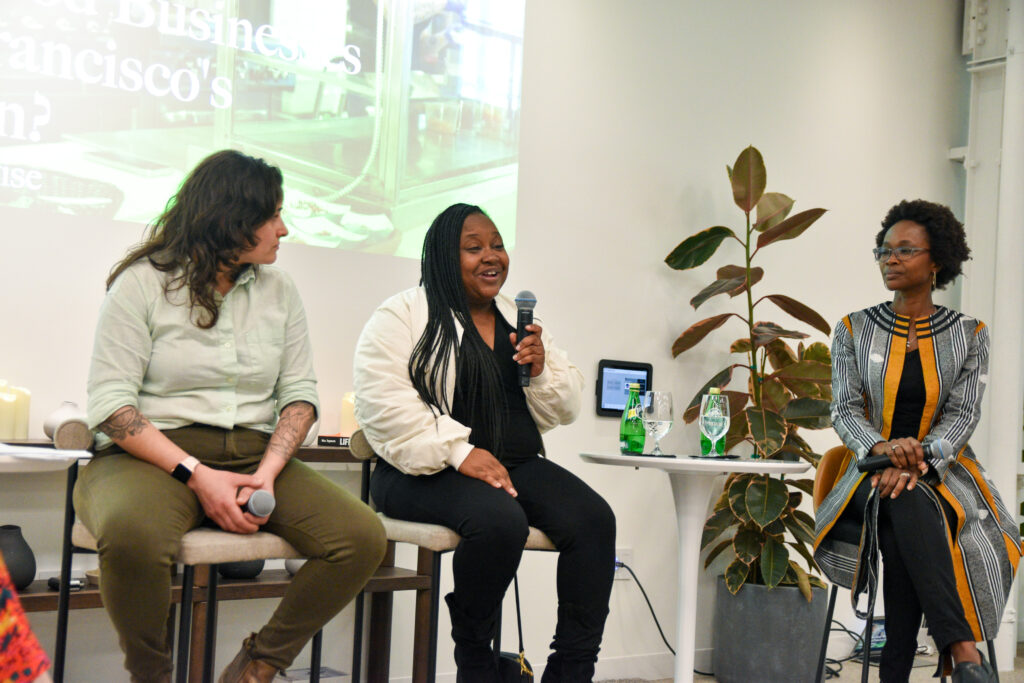
Challenge: Racial Inequity
During COVID, Black-owned businesses seemed to suffer the most. Much of the government-sponsored relief missed Black business owners. According to Pia Harris, this isn’t just due to lack of financial generational wealth, but also a lack in informational wealth. “We’re not coming from generational wealth of knowledge of how to save and how important credit is, because we’re all always in survival mode.”
Solution: Supporting the Support Network
Minding My Black-Owned Business is a San Francisco-based organization that focuses on getting Black business owners the information and knowledge they need to succeed. The group, founded by Pia Harris and run by SFHDC, helps start-ups with business planning and development and hires consultants specializing in finance, tax, and other essentials to help small businesses that may not be able to hire them on their own, or even know that they needed them in the first place. Supporting groups like this is another important step in creating a vibrant food scene for everyone.
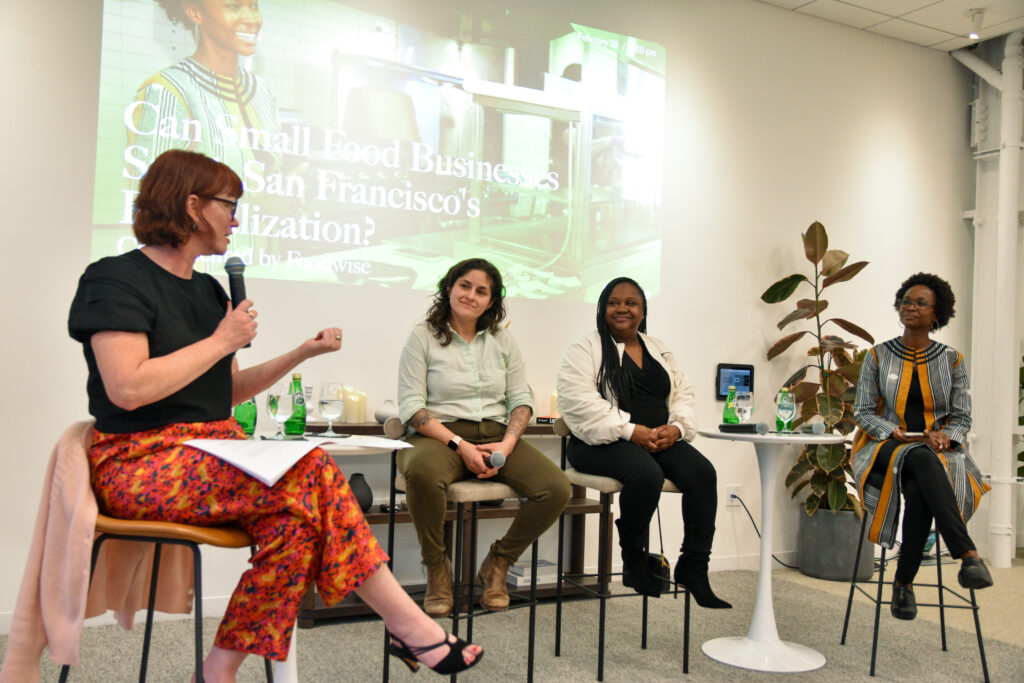
Challenge: Media Feeding the “Doom Loop”
Dubbed “the clickbait doom loop” by Christine Farren, we’ve all seen how the media has portrayed not only SF, but the Bay Area in general over the past few years, focusing on crime and closures. This “bad rap” creates a massive uphill battle for small businesses who depend on locals to visit their shops and restaurants in neighborhoods that have been deemed “too dangerous” by the news and scares away tourism from out-of-town visitors.
Solution: More People of Color in News Media
When people who don’t reflect the population and live in the communities they are writing about tell the stories, the stories become warped. They become stories that no longer belong to the people and cities that they’re about. They become the type of stories that feed into fear and sensationalism.
However, as Emiliana Puyana so eloquently puts it, with more people of color in the media, “we can tell the story and we can hold the media accountable for it…Our city will become more vibrant the second that media starts to put power where power should be, which is in the communities that are thriving in spite of the challenges that our city is facing.”
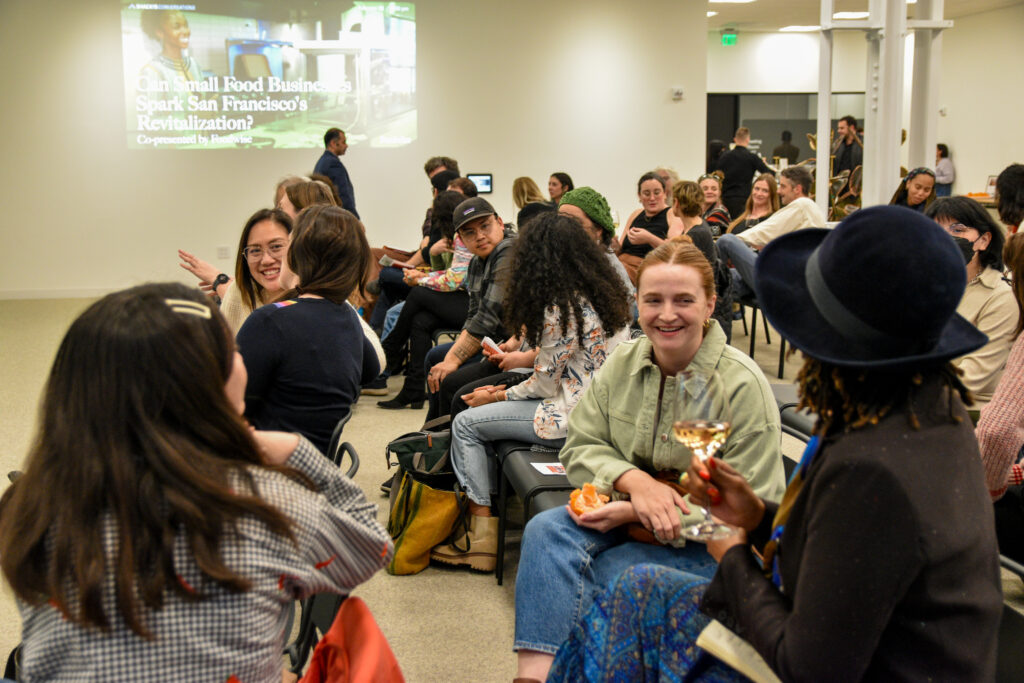
How We Can All Help
Our small food businesses are a huge part of what makes our, or any city, unique. They’re a reflection of the communities they serve, and an extension of the cultures that exist there. So when thinking about what we owe them as businesses, we must also think about what we owe ourselves as community members.
“Put your hard earned money where your mouth is and do it out of your comfort zone,” says Emiliana. “Go to Yemeni Kitchen in the Tenderloin, go to the Fillmore, go to these neighborhoods that get the bad rap all the time so that you can see for yourself how absolutely stunning they are.”
Want to dig in further? Listen to the full conversation here.
Savannah Leone Bundy is a Bay Area chef and food writer. You can find her at tablehopper.com and on Instagram @thesavannahleone.
Topics: Culinary, Entrepreneurship, Equity, Events, Local, Small business, Talks
